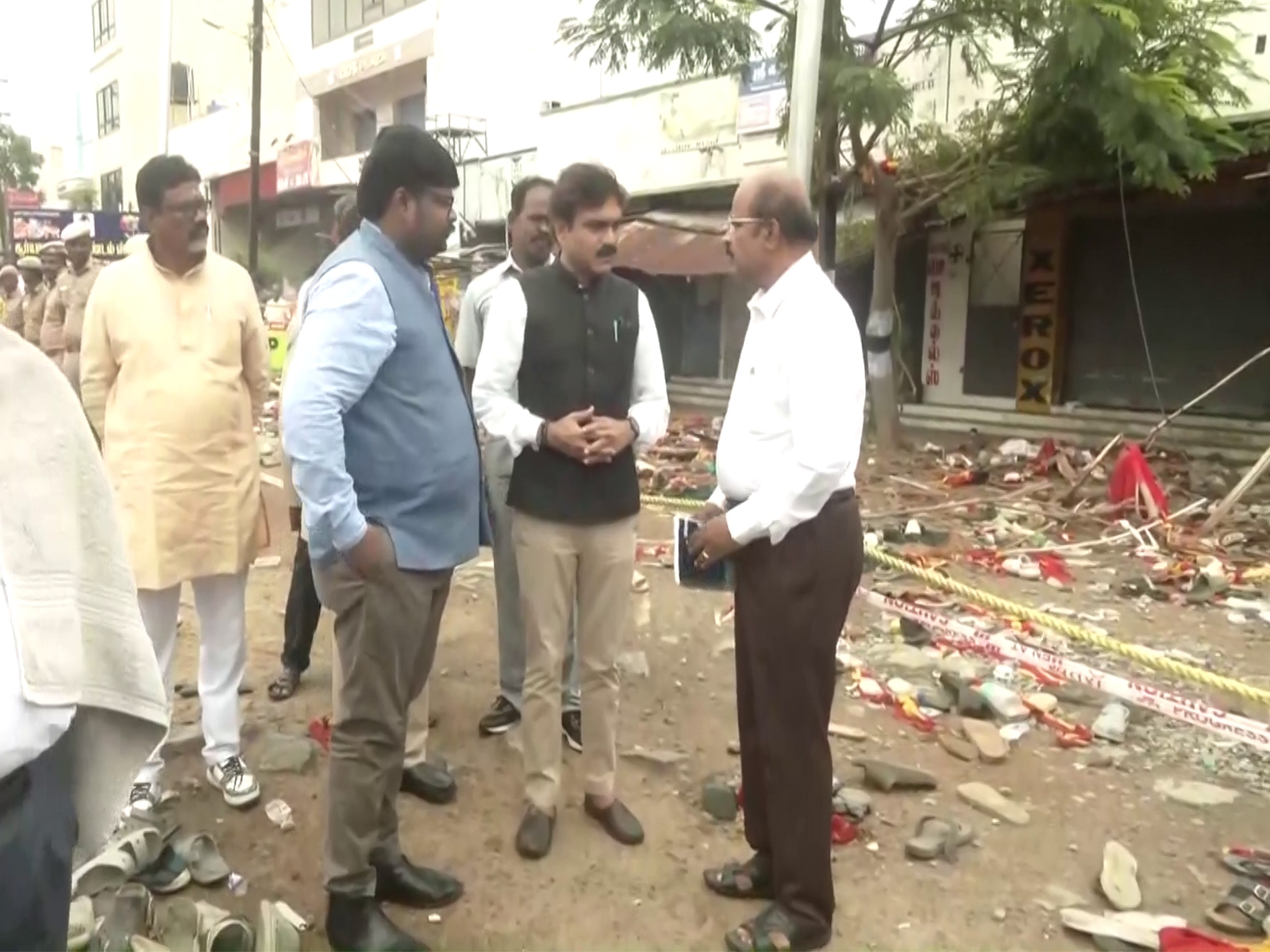The Prototype Fund just funded 20 amazing projects to revolutionise media

A programme that allows journalists to fact check politicians' statements in real-time seems like a journalist's dream. But thanks to the Knight Foundation this, and other exciting new tech innovations may soon be reality.
With startups mushrooming globally, innovation has never been this rampant. Where good ideas were once lost to the impossibility of realisation, the culture of startups and incubators has made ideas infinitely more executable.
We saw exactly that when Disney's TechStar Accelerator programme helped give rise to incredible 3D printed bionic limbs for kids.
Read: This is pure win: Disney-themed prosthetic arms for children
And now, the Knight Foundation's Prototype Fund has just announced that it's pouring $700,000 into promising new projects like the real-time fact checker.
Originally set up to improve journalism and foster innovation in media and the arts, Knight announced that they've zeroed in on 20 exciting new ventures. The projects, aimed at improving civic engagement and data accessibility, will each receive $35,000 in early-stage funding.
They'll then have six months to take their brainchild from idea to, hopefully, demo.
A brave new world of media innovation
In line with Knight's own focus on media innovation, a large number of the projects are media-centric and led by media veterans.
Take, for example, Carebot - led by NPR's visual editor Brian Boyer - that aims to revolutionise the way newsrooms evaluate their success. Or ClaimBuster, the real-time fact checker being developed by University of Texas at Arlington - a tool that 'identifies factual claims likely to be important to the public'.
The Knight Foundation just gave $700,000 to a bunch of projects that aim to revolutionise governance & journalism
Given the importance of data - and the spiralling pace at which we're generating and storing it - a number of the projects deal with gathering, simplifying and more effectively communicating data. So there's Data Proofer, a desktop app that helps journalists evaluate the quality of their data before using it; and Catamount, a WordPress plugin that will automatically link important data to points within news stories.
Making tech work for all of us
According to Chris Barr, head of the Prototype Fund, the projects selected aim to "provide better ways to inform and engage communities with the information that is essential to their lives." The media-based projects do this by keeping the community informed.
But there's other projects that have nothing to do with the media - and everything to do with , other projects are solely focused on improving the lives of the general public.
Also read: World's first 3D-printed bikini cleans water as you swim
Initiatives like ClearGov.com aim to help citizens better understand their governments' spending and improve transparency. Meanwhile, other projects aim to help governments better communicate with their citizens, like the CityGram currently being developed for Charlotte, USA.
That each of the projects will eventually be open source means that they may one day be replicated in communities around the world.
Here's the full list of projects sanctioned by the Fund:
Pilgrim by Are.na (New York): Helping researchers find related articles, images, academic papers, text and more through an open-source, intelligent web-crawler that gathers this online data.
Billcam by DailyCloudt, Inc. (Berkeley, Calif.): Adding transparency to the legislative process through an embeddable, shareable legislative tracking tool that connects federal and state bills and corresponding community annotation with relevant news articles, information, topical blogs and more.
Canaree.io by Startup Policy Lab (San Francisco): Simplifying government data requests through a web-based application that helps startups navigate law enforcement requests for consumer data and protects user privacy.
Carebot by NPR (Washington DC): Changing how newsrooms measure and celebrate success by measuring the things that actually matter: Did people complete the story? What proportion shared it? Did we make them care?
Catamount (Montpelier, Ver.): Helping journalists provide their readers with more meaningful information by building a WordPress plugin that automates integration between news stories and datasets with contextual and historical details; for example, a story about a politician could provide a link to their top donors.
ClaimBuster by University of Texas at Arlington (Arlington, Texas): Helping journalists fact-check statements made by politicians in real-time using a machine-learning tool that automatically identifies factual claims likely to be important to the public.
CityGram by Code for Charlotte (Charlotte, NC): Making it easier for local governments to connect with their citizens by creating a notification system that allows users to receive information from their government by selecting a geographic area, category and delivery method for the notifications.
ClearGov.com by ClearGov Inc. (Hopkinton, MA): Helping citizens better understand local government finances through a website, which will include easy-to-understand infographics and benchmarking data that allows them to compare these finances to similar towns. The site will also serve as a platform for local governments to engage with citizens and improve transparency.
Dataproofer by Vocativ (New York): Helping data journalists and others check whether a dataset is accurate or contains errors through an app that lets users assess the quality of their data before they begin reporting, analyzing, or visualizing it.
Read more- Google Loon: 5 facts that you must know about the internet beaming project
Hudson App by Run Hop (San Francisco): Making it easy and fun to discover things to read, watch and listen to through an app that sources from social signals and curated channels. Join the beta at: gethudson.com.
Local/Municipal Election Dates and Deadlines Data Management System and API by U.S. Vote Foundation (Arlington, Va.): Helping to increase voter engagement by creating a nationwide system to collect, maintain and distribute information on upcoming local election dates and deadlines.
LPFM Radio Impact Maps by Prometheus Radio Project (Philadelphia, Penn.): Helping radio stations understand and better engage with audiences, funders, and volunteers by creating software that maps interference and population demographics for low-power FM (LPFM) radio stations in an inexpensive and straightforward way.
IdeaMapr by Bouldin Labs (Austin, Tex.): Helping communities collaborate with local government on complex civic decisions by developing an online tool that guides people through the decision-making process and creates a map of conversations that charts questions, ideas, and pros/cons.
Mapquery by Quartz (New York): Making the creation of geographic maps easier and more accessible by creating a system for finding, merging and refining geographic data.
Municipal Financial Index by Centro de Investigaciticablica (San Juan, Puerto Rico): Providing people with straightforward information on municipal finances through an interactive user-friendly graphic interface that people can use to assess the fiscal condition and spending priorities of their city.
OpenStreetMap Data Quality Analysis Tool by Humanitarian OpenStreetMap Team United States Inc. (Washington D.C.): Helping journalists, humanitarians, academics, government officials and others determine the quality of data in the OpenStreetMap database for a user defined area depending on their topic of interest.
Pteraform by Simiary (Santa Barbara, Calif.): Helping users learn more about places around the world and how a particular topic varies geographically through an open platform that uses an interactive world map to chart search results. The project is a follow-up to Frankenplace.
@Stake by The Engagement Lab at Emerson College (Boston): Increasing civic engagement through a role-playing game that fosters democracy, empathy, and creative problem solving for civic issues.
Street Quality Identification Device (SQUID) by Argo Labs (New York): Helping city agencies make better decisions on street maintenance by creating a low-cost sensor platform that collects and analyses data through street surface imagery.
Together We Listen by New York Public Library: Making digital audio collections from libraries and public media organisations more accessible by combining the auto-transcription services of Pop Up Archive with a community engagement model that will involve the public in updating and enriching these collections. New York Public Library will collaborate with The Moth on the project.







![BJP's Kapil Mishra recreates Shankar Mahadevan’s ‘Breathless’ song to highlight Delhi pollution [WATCH] BJP's Kapil Mishra recreates Shankar Mahadevan’s ‘Breathless’ song to highlight Delhi pollution [WATCH]](https://images.catchnews.com/upload/2022/11/03/kapil-mishra_240884_300x172.png)

![Anupam Kher shares pictures of his toned body on 67th birthday [MUST SEE] Anupam Kher shares pictures of his toned body on 67th birthday [MUST SEE]](https://images.catchnews.com/upload/2022/03/07/Anupam_kher_231145_300x172.jpg)






